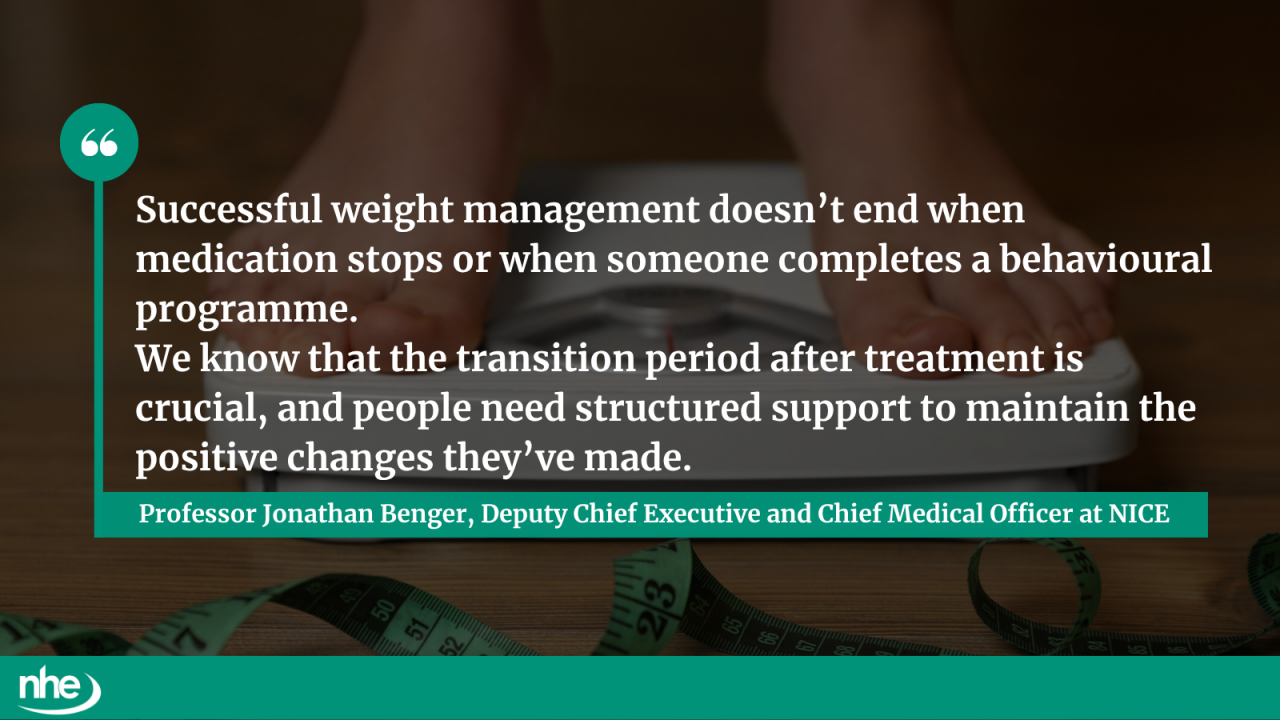People completing obesity medication or weight management programmes should be offered structured, long-term support to help maintain weight loss and improve overall health, according to updated guidance from the National Institute for Health and Care Excellence.
The new quality standard, published today, sets out clear expectations for healthcare providers to offer ongoing advice, tailored action plans, and regular follow-up for patients after treatment. This includes access to tools such as the NHS Better Health platform, support from dietitians or nutritionists, and community-based peer groups like walking clubs or fitness sessions.
Research shows that without continued support, many people regain weight, which can negatively impact both physical and mental health. NICE’s independent committee aims to close this gap by promoting continuity of care and helping patients build sustainable routines.
The updated standard replaces three previous guidelines and reflects the latest thinking on tackling obesity through the health system. It comes as new weight loss drugs such as semaglutide (Wegovy) and tirzepatide (Mounjaro) become available on the NHS for those with the greatest need. Around 240,000 people are expected to be offered tirzepatide over the next three years.
Deputy Chief Executive and Chief Medical Officer at NICE, Professor Jonathan Benger, said:
“Successful weight management doesn’t end when medication stops or when someone completes a behavioural programme.”
“We know that the transition period after treatment is crucial, and people need structured support to maintain the positive changes they’ve made.
“This new standard makes sure services provide that vital continuity of care, and it supports the NHS 10 Year Plan to shift from a ‘sickness service’ to a genuine health service focused on prevention.”

Healthcare teams are now expected to monitor patients for at least a year after treatment and offer additional support if needed. This could include practical advice on daily habits, home and workplace adjustments, and access to digital self-monitoring tools.
In England, 29% of adults live with obesity, and 64% are overweight or obese. Obesity increases the risk of serious conditions such as type 2 diabetes, heart disease, certain cancers, and musculoskeletal problems. The cost to the NHS is estimated at £11.4 billion annually, with a wider economic impact of £74.3 billion.
Healthcare providers and commissioners are expected to begin implementing the standard immediately. Full guidance is available on the NICE website.
Image credit: iStock



















